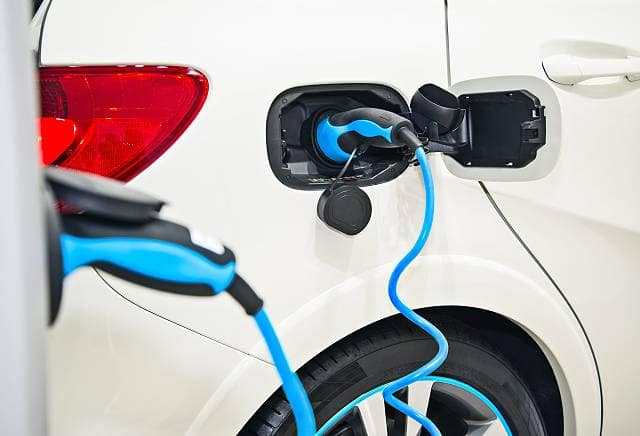Lots of people have decided that they no longer want to solely rely on fossil-fuel-powered cars today. After all, these sorts of vehicles will stop being produced altogether by 2030 so there are only a few years left to buy petrol and diesel cars anyway. However, the UK has not got the best track record when it comes to publicly available charging stations. In many cases, the nearest one will be at a motorway service station miles from home. Yes, the picture is changing but what many people choose to do is rely on their own EV home chargers.
The good news is that home EV chargers tend to be considerably less costly than commercial units. What’s more, they don’t take that long to install. According to one EV charger installation company with offices in London and Essex, Go Electrix, they’d typically expect to have a home EV charger installation completed within 10 working days of receiving an order and, they reckon, they’re often quicker than that. So, if you are considering putting off having one installed on grounds of practicality, you probably need to think again – that’s the case even if you rent your home and need your landlord’s permission.
As such, a more pertinent question to ask is what are the cost implications? Read on to find out.
What sort of EV charger do you need?
To begin with, the cost of EV charging equipment varies a great deal. As such, it pays to shop around and look at different manufacturers. Brands like Easee and Hydra – there are many others – make domestic EV chargers that won’t break the bank. What you really need to consider, in most cases, is the size of the unit you will buy. If your home has a three-phase electrical installation, then you are going to be able to opt for a faster-charging 22kW system. This will mean spending more on the charger, however.
Nevertheless, smaller 7kW EV chargers are perfectly adequate for many residential settings. Unless you drive an all-electric for hours each morning and need your car to be fully charged once more after an hour or so’s break in the middle of the day, an overnight charge with a 7kW wallbox unit is likely to be more than adequate. Remember that PHEVs – plug-in hybrid cars – have smaller battery packs than all-electrics so if you have one of those, a smaller unit won’t necessarily represent any kind of drawback. You may need a system with dynamic loading to help you charge more than one car cost-effectively, however.
Do you need additional hardstanding for EV charging?
Some people don’t consider this factor fully. You will need off-street parking to have an EV charger at home. Whether this is on your own driveway or on some communally accessed land at a block of flats makes little difference but you will need hardstanding and somewhere for the charger to be sited close enough to the area where you park to make it practical.
Let’s assume you have a driveway which can fit three cars on it. If you have your charger in a particular location, then you might block access to other cars or prevent them from getting out when charging. As such, depending on how wide your drive is, you may need to consider some extra paving or tarmac. Of course, this sort of landscaping work isn’t a true cost of installing an EV charger since you can always unplug your car to move it out of the way. Nevertheless, this is an issue of convenience which has an attendant cost that is worth noting.
How much are installation costs?
It is often best to buy your EV charger through the installer who will fit it. Only choose NICEIC-approved installers otherwise your installation might not be safe and won’t be properly signed off. In a competitive marketplace installation costs vary but good installers will supply your chosen EV charger at a reduced price because they tend to buy in bulk from the manufacturers or have deals whereby they can offer favourable resale pricing.
The installation cost will depend not just on the firm you appoint but the position of your charging unit and whether any cabling needs to be run to this location. Given the high level of power required, an armoured cable may be needed. This means the costs involved are often a little higher than comparable jobs, such as installing a new internal power outlet, for example.
What about grant funding?
The good news for all homeowners, renters and residential landlords who would like to install an EV charger at their property is that some of the costs will be covered by the government. So long as you own a PHEV or an all-electric that complies with the rules of the so-called OZEV scheme, you can claim money in the form of a grant for your charger installation. Even better, nearly all electric cars made these days are eligible under the scheme so you should already be all set to proceed.
That said, claiming under OZEV can be tricky and require some technical know-how. This is where your installer may be able to help. Professionally run installation companies will guide you or even take care of the entire application process on your behalf. That’s not bad when the sum residential installations can receive is £350 because it would slash the amount you would otherwise need to stump up.
Consider when to charge
Finally, after your installation has been conducted, try to use your charger when the rate is the cheapest. In most domestic settings, this means recharging cars overnight but it will depend on your utility supplier. Homes with solar panels will find the best time to use their charger, by contrast, is when the sun is up during the middle of the day because the electricity they generate can be stored in your car’s battery pack for later use on the road.





Leave a Comment